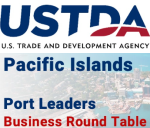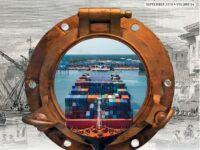The USMCA Is a Win-Win-Win for US, Canada, Mexico
The new United States-Mexico-Canada Agreement is the largest trade deal in American history and is a big win for companies, farmers, shippers and workers throughout the country.
* By Wilbur Ross, U.S. Secretary of Commerce *

The new United States-Mexico-Canada Agreement (USMCA) is the largest trade deal in American history and is a big win for companies, farmers, shippers and workers throughout the country. This trade agreement directly attacks the colossal $81.5 billion trade deficit in goods the United States has with Mexico, and the $19.7 billion trade deficit in goods with Canada.
While many Americans are unaware of the specifics of the deal, the details – and their implications for American companies – are stunning. USMCA eliminates many practices and trade barriers that have long hindered U.S.-companies’ access to the Mexican and Canadian markets.
Importantly, the USMCA updates the rules-of-origin for automobiles by requiring that 75% of the content of vehicles be produced in North America, and that 40%-45% be made by workers earning an average of at least $16 per hour. These provisions are expected to create 75,000 new jobs in the U.S. automotive sector.
New rules-of-origin apply to other industrial products as well, increasing the regional content of chemicals, steel-intensive products, titanium, glass and optical fiber. These new rules will ensure that only producers who use sufficient amounts of regionally made parts or materials receive preferential tariff benefits.
Mexico and Canada are respectively our largest and second largest export markets, and the numbers prove it. Last year, truck freight at the U.S.-Mexico border totaled $424 billion; rail freight was $78 billion; vessel freight was $67 billion; and air freight was $17 billion. At the U.S.-Canada border, truck freight was $348 billion; rail freight was $100 billion; and both air and vessel freight were $30 billion.
Within the agreement are important new chapters, such as: Digital Trade; IPR Protection; Anticorruption; Small and Medium-Sized Enterprises; Currency Manipulation; State-Owned Enterprises; and Good Regulatory Practices.
The Digital Trade chapter includes rules that allow data to be transferred freely across borders and prohibits protectionist limits on the location of data storage and processing. This is a big win for U.S. companies that operate internationally.
The Intellectual Property chapter includes tough enforcement provisions against counterfeiting and piracy. This is a huge problem with many consumer and industrial products. Fakes now account for $500 billion in sales, draining American companies that have worked decades on building strong brands. With USMCA, the U.S. will finally have new tools for customs officials to use to impede the flow of counterfeit goods through our borders.




